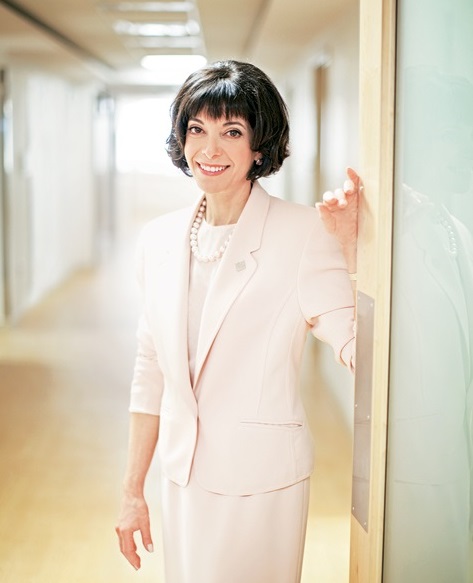

- What was your involvement in the push toward communicating breast density results in BC?
I’m a volunteer advisor to Dense Breasts Canada, a non-profit group of breast cancer survivors and medical professionals striving to educate women and physicians about the risks associated with having dense breasts.
- How is breast density related to breast health?
It’s normal and common to have dense breasts. But having dense breast tissue puts a woman at increased risk for getting breast cancer. Having the highest category of breast density is a greater risk factor than having a mother or sister with breast cancer. And when a woman’s breast tissue is dense, it makes it harder to see a cancer on a mammogram. Cancers and normal dense tissue both appear white on a mammogram, so looking for a cancer “is like looking for a snow ball in a snowstorm.” Women with fatty breasts are at lower risk AND it’s easier to see cancer in a fatty breast.
- Why is it important that women are informed about their breast density?
Mammograms miss 50% of cancers in women with dense tissue. So, women with dense breasts need to know that they can’t have the same trust in the accuracy of their mammogram, than women can if they have fatty breasts. They should still have mammograms, but should also do breast self-examination, and should discuss the option of additional screening with ultrasound, with their family doctor. BC Cancer will initiate a program to educate physicians about dense breasts in 2019.
- How will this decision impact women in BC?
Hopefully, women who learn that they have dense breasts will be in a position to make informed decisions about their health. ALL women would ideally improve their lifestyle to reduce their risk of getting breast cancer.
Changes include:
- Maintaining a healthy body weight, especially after menopause
- Doing regular, moderately-intense exercise
- Reducing the use of hormone therapy after menopause (use the lowest possible dose for the shortest possible time, avoiding oral estrogen, and balancing the risks with the benefits to their quality of life
- Minimizing their alcohol consumption: there’s a linear relationship between alcohol use and breast cancer risk. So enjoy, but in moderation
- Have routine screening mammography.
Women with dense breasts should discuss the option for supplemental screening with their family physician. Currently, there is evidence to show that ultrasound finds an additional 3-4 cancers per thousand women. But like any screening test (like mammograms and pap smears) ultrasound can create false alarms, which can necessitate additional testing to determine whether cancer is present, or not. But when ultrasound finds these cancers, they are usually small, and not yet spread to lymph nodes. So these women are good candidates for less aggressive surgery and often do not require chemotherapy. When not found early, women are more likely to need mastectomies and chemotherapy.
Read more about the announcement here.